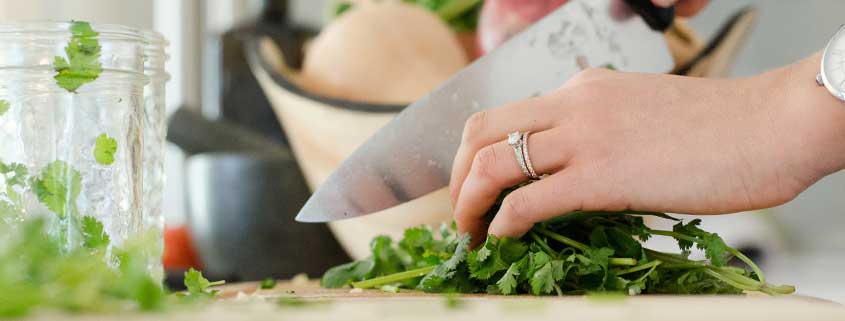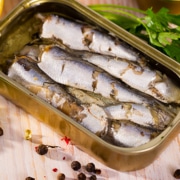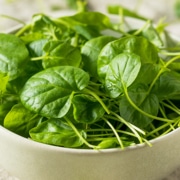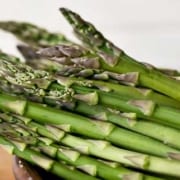Cooking With Herbs
Plants of all shapes and sizes are a cornerstone of any successful diabetes diet. That includes vegetables, fruits, and plant-based protein sources – but have you ever thought about the role herbs can play in diabetes management? While you may not eat these plants on their own, they can still add health benefits to other foods you eat.
However, it’s important not to go overboard. Some herbs can help with diabetes, but they shouldn’t be the sole step people take to treat this condition. Whether you’re curious about the possibility of treating diabetes naturally or just want to add some flavor to your diabetes diet, here’s what you need to know about diabetes and herbs.

Don’t Rely on Herbs Alone
In any discussion of herbs and diabetes, the topic of natural medicine is never far behind. There’s a good reason for that: herbs can have notable health benefits when added carefully to a diabetes treatment plan. As part of this, they can reduce diabetes side effects, replace nutrients a patient lacks, and even lower glucose levels and insulin resistance.
That said, it’s crucial to remember that the use of herbs for diabetes management has its limits. While herbs can lower some people’s reliance on insulin, trustworthy naturopathic doctors and herbalists will never ask their patients to take herbal products instead of insulin. If your pancreas cannot produce the insulin you need, regular insulin therapy is the only way you can keep living a healthy life. Be sure to work with your healthcare team and discuss any herbs or natural remedies you are taking along with your diabetes medications. And remember the best way to manage your diabetes is to take your prescribed medications, and make healthy lifestyle changes like losing weight, increasing exercise and sticking to a healthy and balanced diet.
The Best Herbs for Diabetes
Here are some herbs and natural remedies that may help in the treatment of type 2 diabetes:
Cinnamon. Several scientific studies have supported links between cinnamon and improved diabetes management. Consuming half a teaspoon of this spice each day can possibly help your blood sugar, triglyceride, and cholesterol levels.
Aloe Vera. You most likely are aware of the uses of this plant for the skin however it may help lower levels of both fasting blood glucose and hemoglobin A1C levels. Aloe vera is used as a juice and can even be added to smoothies.
Bitter melon. While this plant may sound like a bitter pill to swallow, its health benefits are worth the trouble. Bitter melon extract was found to help reduce fasting blood glucose levels.
Ginger. This herb has been used for thousands of years in traditional medicines. It has been found that ginger may reduce insulin resistance in people with type 2 diabetes. Use it fresh in cooking, or brew it in a tea.
Psyllium. Fiber is excellent for people with diabetes – including this plant fiber, often found in fiber supplements and bulk laxatives. It can lower your blood sugar and your cholesterol.
Keep These Cooking Tips In Mind
Follow these tips when buying and using herbs in the kitchen:

- Herbs should always be fresh when you purchase them. Steer clear of herbs that are wilted or discolored.
- Store herbs on the top shelf of your refrigerator – since heat rises, this is usually the warmest part of the fridge. To keep them moist, wrap them in a damp paper towel.
- Don’t wash herbs before storing them. Instead, wash them right before using them.
- When recipes call for dry herbs, it’s easy to use fresh herbs instead. In most cases, you can swap 1 teaspoon of dried herbs for 1 tablespoon of fresh herbs.
- Tender herbs (including basil and cilantro) should be added just before a meal is done cooking. On the other hand, robust herbs (like rosemary and thyme) can stand up to longer cooking times.
- While freezing herbs can damage their quality, you can still use frozen herbs in cooked dishes. Try freezing rosemary, thyme, oregano, sage, parsley, tarragon, dill, and chives.
Know Which Herbs to Use
If you haven’t used herbs and spices while cooking before, it can be hard to determine which herbs go best with which foods. To make this easier, use our “cheat sheet” while you get started.
| Beans (dried) | cumin, cayenne, chili, parsley, pepper, sage, savory, thyme |
| Beef | basil, bay, chili, cilantro, curry, cumin, garlic, marjoram, mustard, oregano, parsley, pepper, rosemary, sage, savory, tarragon, thyme |
| Breads | anise, basil, caraway, cardamom, cinnamon, coriander, cumin, dill, garlic, lemon peel, orange peel, oregano, poppy seeds, rosemary, saffron, sage, thyme |
| Cheese | basil, caraway, celery seed, chervil, chili, chives, coriander, cumin, dill, garlic, horseradish, lemon peel, marjoram, mint, mustard, nutmeg, paprika, parsley, pepper, sage, tarragon, thyme |
| Chicken | allspice, basil, bay, cinnamon, curry, dill, fennel, garlic, ginger lemongrass, mustard, paprika, rosemary, saffron, sage, savory, tarragon, thyme |
| Corn | chili, curry, dill, marjoram, parsley, savory, thyme |
| Eggs | basil, chervil, chili, chives, curry, dill, fennel, ginger, lemon peel, marjoram, oregano, paprika, parsley, pepper, sage, tarragon, thyme |
| Fish | anise, basil, bay, cayenne, celery seed, chives, curry, dill fennel, garlic, ginger, lemon peel, mustard, oregano, parsley, rosemary, thyme, saffron, sage, savory, tarragon, marjoram |
| Fruits | allspice, anise, cardamom, cinnamon, cloves, coriander, ginger, mint |
| Lamb | basil, bay, cinnamon, coriander, cumin, curry, dill, garlic, marjoram, mint, mustard, oregano, parsley, rosemary, savory, tarragon, thyme |
| Potatoes | basil, caraway, celery seed, chervil, chives, coriander, dill, marjoram, oregano, paprika, parsley, poppy seed, rosemary, tarragon, thyme |
| Salad Dressings | basil, celery seed, chives, dill, fennel, garlic, horseradish, marjoram, mustard, oregano, paprika, parsley, pepper, rosemary, saffron, tarragon, thyme |
| Salads | basil, caraway, chives, dill, garlic, lemon peel, marjoram, mint, oregano, parsley, rosemary, tarragon, thyme |
| Soups | basil, bay, chervil, chili, chives, cumin, dill, fennel, garlic, marjoram, parsley, pepper, rosemary, sage, savory, thyme |
| Sweets | allspice, angelica, anise, cardamom, cinnamon, cloves, fennel, ginger, lemon peel, mace, nutmeg, mint, orange peel, rosemary |
| Tomatoes | basil, bay , celery seed, cinnamon, chili, curry, dill, fennel, garlic, ginger, gumbo file, lemongrass, marjoram, oregano, parsley, rosemary, savory, tarragon, thyme |
Manage Diabetes with Herbs – And Supplies from ADS
When you combine the health benefits of natural herbs with the diabetes supplies you already rely on every day, it’s easy to take your diabetes management efforts to the next level. Along with increasing your herb intake, you can make it simpler to live with diabetes by ordering your supplies right here at ADS. We sell insulin, diabetes testing supplies, glucose meters, and more – get started by placing your first order today!














